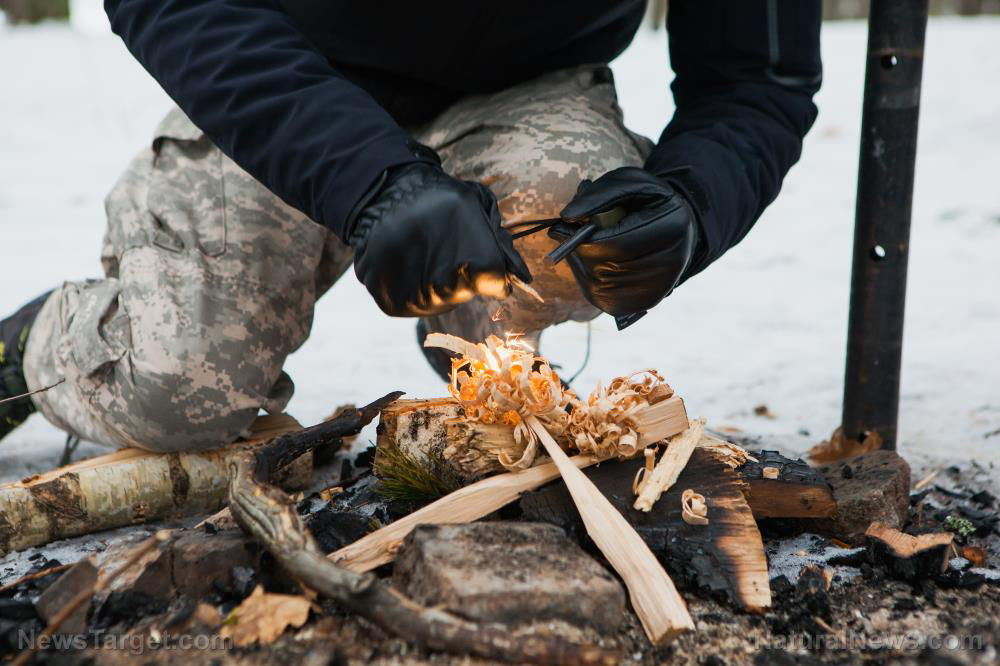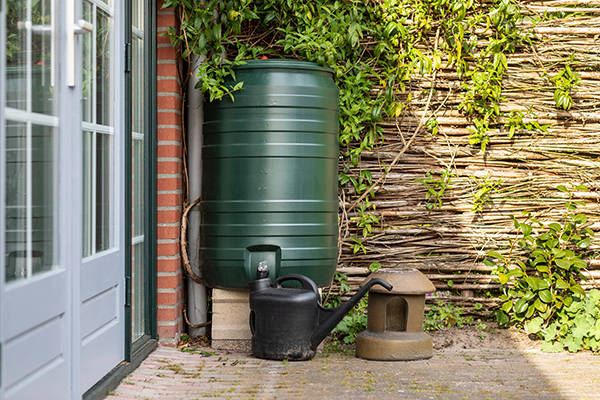These 8 odors inside your house can mean BIG trouble
04/05/2023 / By Olivia Cook

Strange odors inside your house can be hazardous. Beware of these eight odors, as they can spell trouble if you don’t immediately find the source.
A fishy smell
If something smells fishy, that smell can come from loose or frayed wires or cords, overloaded circuits, faulty outlets, incorrectly sized breakers or fuses or overheated electrical shielding or insulation. These problems could result in a house fire if they are not addressed quickly and properly.
Burning, smoky odors
Unless you have a fireplace, the smell of smoke or something burning is dangerous, even if you don’t see signs of fire. You could have something smoldering inside your walls or in the basement if you have one. This odor is common during a lightning storm and could mean overheated appliances, electrical wires, frayed or loose wiring or incorrectly-sized breakers or fuses. Check your electrical outlets for burn marks or sparks and if the smell persists, call a licensed electrician.
An “oily” burning smell could mean that your furnace is not functioning properly and failing to ignite all of the oil in the burner. Call a licensed professional as soon as possible to have your unit checked and serviced. For more details, review some tips on DIY furnace cleaning and maintenance tasks to complete before winter.
Cat urine
Even people without feline friends may smell cat urine, especially after it rains. That distinctive odor can be an indication of a mold problem as certain types of mold smell like cat urine – including toxic black mold, which should be remediated by a professional. (Related: Black mold disease is silently killing millions of people – and nobody knows about it.)
Another source of cat urine odor is ornamental boxwood, a common landscaping shrub.
Gym or “locker room” smell
A “dirty sock smell” can be caused by a buildup of bacteria on your heating system coils, which is especially prevalent in the spring and fall when the system is constantly cycling between hot and cold. Condensation on the coils creates the perfect environment for bacterial growth, which produces a distinctive odor.
The best way to rid your home of the stench is to clean the evaporator coils with a non-acid coil cleaner, or call in a qualified heating, ventilation and air conditioning (HVAC) professional to clean the coils and air ducts.
Musty and dusty
A musty or dusty smell is often a sign of mold or mildew, especially in humid or moisture-prone environments, like the basement, kitchen or bathroom and laundry room. Mold and mildew can create severe respiratory problems and can exacerbate allergies and asthma in sensitive individuals. (Related: Destroy household mold with this all-natural spray.)
It is important to eliminate mold as quickly as possible. Small areas of mold and mildew can be cleaned with a mixture of bleach and water. More serious mold and mildew problems may require the services of a professional.
To prevent mold and mildew from coming back, check for leaky fixtures and broken or cracked pipes and consider installing excuse fans or otherwise improving ventilation in the affected rooms.
“New paint” smell
Some people love the smell of freshly painted walls, but for others, fresh paint can cause coughing, dizziness, headaches, sneezing and/or throat irritation. Volatile organic compounds (VOCs) have been identified as the culprit and the Environmental Protection Agency recommends that consumers use eco-friendly paints for their home interiors.
Always open doors and windows for proper ventilation while painting. When you’re done, deodorize naturally by placing bowls of baking soda, crushed charcoal or fresh lemons in the water around the perimeter of the painted area. Leave these overnight or until the paint smell dissipates completely.
Rotting wood
A combination of damp, earthy, musty and swampy smells usually means you have rotting wood somewhere in your home and could cause the structural integrity of the affected area or your house to crumble.
Check these common sites for wood rot:
- Door sills or frames can weaken with ice, rain or snow exposure over time.
- Flooring, especially in bathrooms and kitchens, can experience moisture build-up, plumbing leaks and poor ventilation.
- Window sills or frames have condensation build up on the glass and seep into the surrounding wood.
Wet dog smell
British chemistry teacher Andy Bruning characterizes the signature odor of the smell of wet dog as a “mixture of scents, including almond, fruit, honey and mushroom with hints of feces and sulfur.”
Bathing your dog regularly (twice a month) can help address this issue. Keep your dog’s belongings clean, too. Collars, harnesses, beds, toys, etc. often retain smells and should be washed regularly.
Pay attention to what your dog does in the house. If your dog comes home wet, it is best to dry it before it rubs against the couch, rolls on the floor, jumps on your bed and so on. Ultimately, if your dog’s smell seems abnormal or you can’t seem to get it to go away, consult your veterinarian.
Note that squirrels, raccoons and rats give off a similar dirty, wet dog smell. If you don’t own a dog or if you keep getting a whiff of that dirty, wet dog smell, you may have rodents in your house. Many wild animals can transmit worms and diseases to humans and pets. Keep everyone safe by calling in a professional pest control service to remove your “unwelcome guests” and interlopers.
Find related stories at Pollution.news.
Watch the following video to learn how to stop the septic tank smell in the house.
This video is from the 00 channel on Brighteon.com.
More related stories:
Cleanse your home of these harmful chemicals.
Is your home full of this deadly gas?
Sources include:
Submit a correction >>
Tagged Under:
bad odors, environment, homesteading, off grid, preparedness, prepper, prepping, survival
This article may contain statements that reflect the opinion of the author
RECENT NEWS & ARTICLES
COPYRIGHT © 2017 OFFGRID NEWS




















